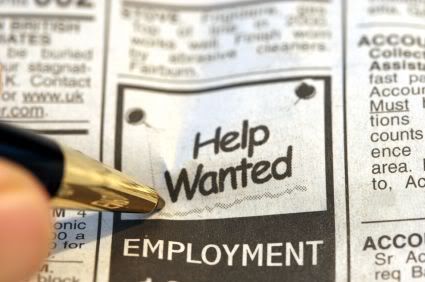It’s time for the March magazines to hit newsstands, which means we’re due for another “End of Men” article. This month, Philadelphia Magazine’s feature article entitled “The Sorry Lives and Confusing Times of Today's Young Men” (evidently taking a cue from Kay Hymowitz) investigates the trend of listless, directionless young men living under their parents’ roof, as an astounding one in five 25-34 year-old men currently do. Author Sandy Hingston interviews several experts who each attribute this reversion to boyhood to various social factors: the recession, the higher education bubble, the “feminization” of education, readily-available internet pornography, facebook, cultural confusion over modern definitions of 'masculinity,' and (of course) that age-old scapegoat of boyhood addiction, video games.
We’re supposed to feel bad for these guys, and given the economic and sociological factors that have converged on the class of 2009, it was an undeniably tough time to graduate and enter the job market. Employers don't want to hire them, women don't want to date them, their parents are disappointed in them, life is clearly not turning out how they expected. This recession has been particularly rough for men, with jobs in male-dominated fields like construction and finance disappearing almost overnight. However, the young men Hingston interviewed for this article don’t seem to elicit much sympathy. Take Connor, for example:
Connor, 24, graduated from Penn State in May of last year. It took him five years instead of four to finish his journalism degree, so he has about a hundred thou in student loans. “Scholarship was the ball I dropped more often than work or my social life,” he says. When I spoke to him late last year, he was living at home with his parents, working part-time—30 hours a week—as a blogger. It wasn’t enough to live on, and he didn’t get health benefits. He was sure he could get a different job: “If I wanted to support myself, I would. But I’m lucky enough to have parents who are well off. We’re all just waiting it out for a while.”
(Emphasis mine).
Connor spent $100k on a degree 1.) that’s never been known for commanding high salaries, and 2.) that is in a field that’s been declining for the last decade. He’s lucky insofar as his part time blogging gig grew from an unpaid internship – “If it hadn’t, ‘I would have gotten a job as a waiter somewhere. I wasn’t going to take something I didn’t want to do.’” Sigh.
A few pages later, we’re introduced to James:
James graduated a decade ago from a big state college out West. “I was not the greatest student in high school,” he admits, “so my options weren’t Ivy League. I decided to go for the weather.” He majored in business. Why? “I got to a point where I just wanted to get out, and that’s what I chose.”
While there’s nothing wrong with opting to go to college at an affordable state school (as I did), the lax admissions standards at these kinds of schools mean that almost anybody with a pulse can get in, drop between $10k – $30k on a liberal arts or general business degree, and graduate without having gained any real skills. This is a huge problem in our higher education sector. Unlike Rick Santorum, I don’t consider the aspiration to higher ed a “snobbish” pursuit. However, unlike President Obama, I don’t think social policies that stimulate malinvestment in meaningless, inflated college degrees is good for the country, either. When marginal students are ushered into debt-financed higher education immediately after high school, many either drop/flunk out or struggle along with barely-passing grades. Those that graduate without employable skills find themselves in an unfortunate position of being unemployable and saddled with debt. Well-meaning parents invite their graduates to move back into the house, motivated by an understandable desire not to see their children flounder or fail out in the real world, and I think this is where the real trouble begins.
As J.K. Rowling famously said, failure is an essential part of self-discovery and personal growth. I have friends from college who still live at home because their parents don’t want them to move out on their own until they become responsible young men. But isn’t this putting the cart before the horse? Responsibility comes from dealing with the consequences of our actions, and that includes the occasional mistake. Moreover, these young floundering guys need to know that there’s no shame in waiting tables, folding sweaters or working nights at the supermarket in order to support yourself in a depressed economy. It’s not a sign of failure to be pushing 30 and still have roommates, or to even live with your parents and contribute to household expenses. Many of us are putting off adulthood to some extent. But the longer these guys stay out of the job market and safely under mom and dad’s roof, the more their skills degrade. This generation of graduates is going to have a rougher time in the job market than their older siblings did, there’s no doubt about that. But if there’s one trait that employers are universally impressed with, it’s a willingness to work hard and hustle, especially when faced with adversity. It sounds like this is a life lesson some of these grads are missing.


